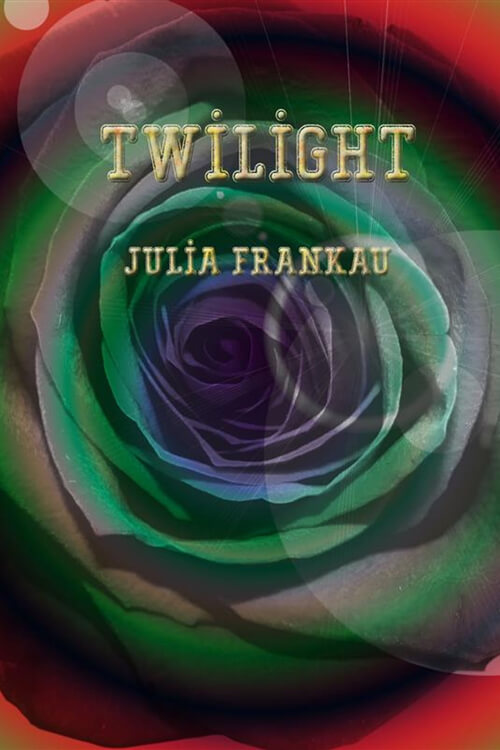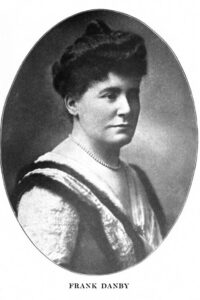
Twilight
A COUPLE of years ago, on the very verge of the illness that subsequently overwhelmed me, I took a small furnished house in Pineland. I did not inspect the place but signed the agreement at the instance of the local house agent, who proved a little less inventive than the majority of his confreres.
Three months of neuritis, only kept within bounds by drugs, had made me comparatively indifferent to my surroundings. I needed to move because I had become intolerant of the friends who exclaimed at my ill looks, and the acquaintances who failed to notice any alteration in me. One sister whom I loved, and who loved me, exasperated me with constant visits and ill-concealed anxiety. Another irritated me a little less by making light of my ailment and speaking of neuritis in an easy familiar manner as one might of toothache or a corn. I had no natural sleep, and if I were not on the borderland of insanity, I was at least within sight of the home park of inconsequence. Reasoned behavior was no longer possible, and I knew I needed to be alone.
I do not wish to recall this bad time nor the worse that antedated my departure, when I was at the mercy of venal doctors and indifferent nurses, dependent on grudged bad service and overpaid inattention, taking a so-called rest cure. But I do wish to relate a most curious circumstance, or set of circumstances, that made my stay in Pineland memorable, and left me, after my sojourn there, obsessed with the story of which I found the beginning on the first night of my arrival, and the end in the long fevered nights that followed. I hardly know how much is true and how much is fiction in this story; for what the cache of letters is responsible, and for what the morphia.
The house at Pineland was called Carbies, and it was haunted for me from the first by Margaret Capel and Gabriel Stanton. Quite early in my stay, I must have contemplated writing about them, knowing that there was no better way of ridding myself of their phantoms, than by trying to make them substantial in pen and ink. I had their letters and some scraps of an unfinished diary to help me, a notebook with many blank pages, the garrulous reticence of the village apothecary, and the evidence of the sun-washed God’s Acre by the old church.
Read or download Book
Julia Frankau aka Frank Danby
Julia Frankau (30 July 1859 – 17 March 1916) was a successful novelist who wrote under the name Frank Danby. Her first novel was published in 1887: Dr. Phillips: A Maida Vale Idyll. Its portrayal of London Jews and Jewish life, and its depiction of murder by a doctor were controversial. This was followed by more Frank Danby novels and books on other subjects, including engraving, which were sometimes written under her name. Frankau continued to write until the time of her death.
Biography
Frankau’s father was Hyman Davis (1824–1875), a London portrait photographer, though she and her older siblings were born in Dublin, where Davis practiced as a dentist during the 1850s. On returning to London in the early 1860s, the Davis family lived first in Bruton Street, Mayfair, before moving to Maida Vale.
She was a sister of the librettist James Davis, pen name Owen Hall, (1853–1907), and the gossip columnist and fashion writer Mrs Aria (1861–1931). For a brief period during her early teens, she was home-tutored by Laura Lafargue, a daughter of Karl Marx. Another of her brothers, Harrie Davis, emigrated to New York, where he was employed as manager of the Gettysburg Cyclorama and also went on to pursue a journalistic career.
She married the London cigar importer Arthur Frankau (1849–1904) in 1883. They lived first at 103 Gloucester Terrace (London W), moving to 32a Weymouth Street in the later 1880s. Two of their three sons were author Gilbert Frankau (1884–1952) and actor Ronald Frankau (1894–1951) (thus Julia Frankau is the grandmother of novelist Pamela Frankau and actress Rosemary Frankau, and great-grandmother of bibliographer Timothy d’Arch Smith and scriptwriter Sam Bain), and their daughter was the Cambridge don Joan Bennett (1896–1986), one of the “constellation of critics” called by the defense in the Lady Chatterley Trial. In this connection, Julia herself was credited by Mrs. Belloc Lowndes with having been “one of the very few to recognize the genius of D. H. Lawrence”.
Julia’s sister Florette married architect Marcus E. Collins in 1889, thus connecting the Davis and Frankau families with Arthur Collins of Drury Lane Theatre, theatrical manager Horace Collins, and stage director Frank Collins. Florette Collins published one novel in 1906, whereupon her sisters suggested she should content herself with being “the beauty of the family”. The actor Henry Irving joined Arthur and Julia Frankau’s family circle after Mrs. Aria became his mistress in the 1890s.
During the 1890s, Julia Frankau began to research and write about engraving, ultimately publishing (under her married name) three books on the subject. Her sister Eliza recalled: “Having started a small collection of eighteenth-century engravings of mezzotint and stipple, she particularly favored the English stipple color prints, and because no book existed telling her what she wanted to know about them, she set to work and wrote one.” After she returned to fiction – or, to use her phrase, “relapsed into novel writing” – in 1902, The Sketch found “something quaint in the thought that Mrs. Frankau – who, as ‘Frank Danby’, has recently published that brilliant study of contemporary manners (and morals), Pigs in Clover – should be, as she is without question, the greatest living authority on that daintiest product of the eighteenth century, the color-print.”
The commercial success of Pigs in Clover, which coincided with a substantial inheritance from Arthur’s late brother and business partner Edwin Frankau (1854–1903), permitted Arthur and Julia Frankau to move from Weymouth Street to 11 Clarges Street, as well as acquiring a seaside retreat named Clover Cottage (now 13 South Cliff, Eastbourne). Their Clarges Street house was said to have been occupied at one time by Emma, Lady Hamilton, thus inspiring Frank Danby’s Story of Emma, Lady Hamilton.






